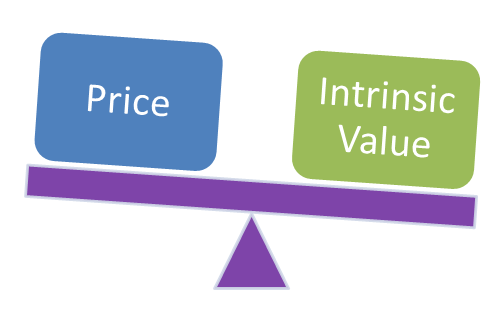Useful Debt Management: 7 Lessons from India’s Millennial Financial Habits
Are you a Millennial drowning in debt? You’re not alone. “A Study of Debt Management practices of Millennials in India” by Pratiksha and Dr. Varsha reveals shocking insights about India’s Millennials’ financial struggles.
This article explores why Millennials in India are borrowing heavily and struggling to repay. We’ll uncover how two-thirds of Millennials grapple with long-term debts like student loans and mortgages, while one-third juggle multiple major expenses. Credit card debt emerges as the top short-term borrowing choice.
Most concerning is the gap between Millennials’ perceived and actual financial literacy. We’ll share strategies to boost your financial knowledge, optimise debt management, and make smarter money decisions.
Don’t let debt define you. Join us to discover how you can break free from the borrowing cycle and achieve financial stability.

Key Takeaways (TL;DR)
Objectives
This scholarly journal talks about how well Millennials in India understand money and how they handle their debts. It points out that many Millennials have a lot of debt and argues that they need more education about personal finance. This could help them make better choices when it comes to managing their money.
Key Findings
- The research tries to understand why Millennials in India borrow money, why they sometimes can’t pay it back, and how knowing more about money could help them manage their debts better.
- Most young adults (Millennials) have more debt than they can handle and find it hard to make their payments on time.
- About two out of every three Millennials owe money for big things like college loans, house payments, or car loans.
- Nearly one in three Millennials owes money for more than one big expense.
- Among Millennials in India, credit cards are the most common way of borrowing money for short-term needs.
- There’s a big difference between how good Millennials think they are with money and how good they actually are.
- Even though Millennials feel sure about their money choices, they often don’t know enough about managing money and finances.
Methods
This study focused on people between 25 and 40 years old, often called Millennials. The researchers talked to 270 people, including some who were already getting help from a financial planning company.
To gather information, they asked everyone to fill out a survey with two main parts:
- The first part asked questions about their money habits and experiences.
- The second part tested how much they knew about managing money.
After collecting all the answers, the researchers used a special math tool called a Chi-square test to understand what the information meant. They were particularly interested in learning about:
- How Millennials handle their personal finances
- How they manage their debts
- Their experiences with borrowing money
- How they use loans and credit cards
By looking at all these factors, the study aimed to get a clear picture of how Millennials are dealing with money matters and what challenges they might be facing.
Results
This study helps us understand how Millennials in India handle their debts, including how they decide to borrow money, why they might not pay it back on time, and how knowing more about money could help them manage their debts better.
It turns out that many Millennials rely heavily on borrowing money and don’t always know as much as they should about managing their finances. However, teaching young people about money in school can make a big difference in how they handle their money later on.
When high schools include classes about money and economics, it can help students learn to budget better and avoid taking on too much debt. Plus, math classes can help improve thinking skills, which means students might be less likely to make money mistakes.
The study also found that people are more likely to have money troubles when they have a lot of debt compared to how much they earn. A chi-square test showed a significant correlation (p < 0.05) between income and defaults. Millennials, in particular, seem to have a harder time paying back their loans on time.
One key point is that to be good with money, it’s important to have financial knowledge. Many Millennials don’t have a strong understanding of money matters, which could make it harder for them to succeed financially.
The researchers used a special math test called chi-square and found a strong link between how much money people make and whether they have trouble paying back loans. This means that the idea that there is no connection between income and loan defaults is probably not true.
Limitations
While this study gives us some helpful insights, it’s important to understand its limitations:
- The research only looked at Millennials in India, so we don’t know how other age groups compare.
- This study is just the beginning – we need more research to figure out the best ways for Millennials to manage their debt.
- The study only looked at people in the India and data in the United States. What’s true for Millennials in these countries might not be the same for those in other parts of the world.
- The researchers asked 270 people about their money habits. While this is a good start, it might not tell us about all Millennials everywhere.
- The study doesn’t fully explain how personal debt problems affect the bigger picture of a country’s economy. There’s still more to learn about this.
In simple terms, this study gives us some useful information, but it’s just one piece of the puzzle. We need more research to get a complete picture of how Millennials handle debt and how it affects them and the economy. This study is a good starting point, but there’s still a lot more to explore and understand about Millennials and their financial challenges.
Conclusion
The study found that managing debt is a big challenge for many Millennials, and that knowing more about money can make a big difference in how well they handle their debts. To help adults better manage their debt, the study came up with a simple “4 D debt management model.”
It’s common for Millennials to have a lot of debt, and many of them don’t have a strong understanding of how to handle money wisely. That’s why it’s so important for Millennials to learn more about personal finance. When they have this knowledge, they can make better choices about borrowing and spending money.
The study really stresses how crucial it is for Millennials to become financially literate and to get a good education about money matters. This can help prevent them from taking on too much debt in the first place.
One of the main takeaways is that Millennials are borrowing a lot of money and taking on significant debt. To protect their financial health, they need to become more financially aware and knowledgeable. The study emphasizes the importance of providing Millennials with resources and education to help them avoid falling into debt and struggling to pay it back.
The researchers also found a strong link between how much money people earn and whether they default on their loans. Millennials, in particular, are at risk because they often have high levels of debt but low levels of financial know-how.
In simple terms, this study shows that Millennials need to be armed with financial knowledge so they can make smart choices about borrowing and debt. With the right education and tools, they can improve their financial health and well-being.




